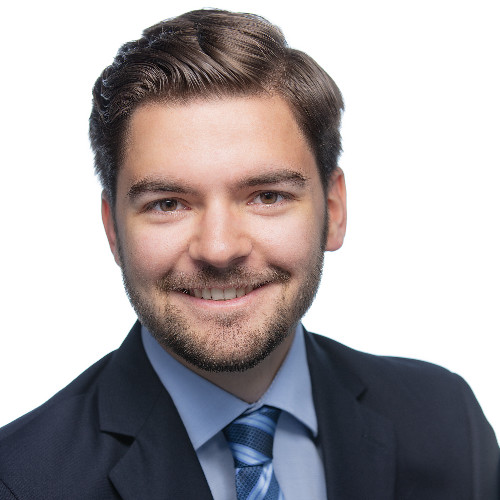
In this interview, Guillaume Rais, a third-year Economics PhD student at HEC Lausanne, shares insights into his academic journey and motivations.
COULD YOU PLEASE INTRODUCE YOURSELF? WHAT YEAR DID YOU COMPLETE YOUR MASTER'S IN ECONOMICS FROM HEC LAUSANNE?
My name is Guillaume Rais. I am currently in the 3rd year of the PhD program in Economics here at HEC Lausanne. Since I also did the Bachelor and the Master in Economics here (I completed the Master in 2021), one can say that I am a pure product of HEC Lausanne. Even though I stayed abroad a bit: in the US during the Bachelor, in Germany during the Master, and in France in-between, I came to the conclusion that it would have been a shame not to do my PhD in a faculty that is both of great quality and next to where I come from.
WHAT INITIALLY SPARKED YOUR INTEREST IN PURSUING A PHD IN ECONOMICS, AND HOW HAS THIS DECISION CONTRIBUTED TO YOUR CAREER DEVELOPMENT?
I started to think about doing a PhD already during the Bachelor. I had the feeling that I wanted to go beyond what we were being taught in the lectures. Behind this is the fact that I wanted to center my career around having a concrete and positive impact on society. Doing the PhD thus appeared as evident, because it meant that I would be less limited in what I can do and decide in the future. Obviously, the positive impact of an economist on society is harder to see at first glance than the one of a surgeon, for example. However, if you look attentively, the impact of economists is widespread: from central banks to public administrations, international organizations, and even private firms, economists help in understanding how individuals make decisions, in stabilizing inflation, designing markets, informing decision makers, explaining complex mechanisms in the economy, and so on.
WHAT SPECIFIC SKILLS OR KNOWLEDGE DID YOU ACQUIRE DURING YOUR MASTER'S PROGRAM THAT HAVE PROVEN INVALUABLE IN YOUR CURRENT ROLE, AND HOW DO YOU APPLY THEM REGULARLY IN YOUR WORK?
Without doubt everything that surrounds conducting a heavy project from start to finish. This means being able to plan clearly what you need to do, work efficiently with others, go straight to the point, make difficult choices, stay motivated when you feel like the project is going nowhere (this is perhaps also one of the hardest aspects of doing a PhD), and so many other things. Even though the kind of projects you work on during the Master are smaller in size than those in the PhD, the aspects I just listed do not change. It’s only the size and the length of the project that is different. On a more specific and technical side, I would say that the programming course from Prof. Scheidegger was a real help for me, especially the introduction to Python. Again, in my opinion, the most important parts of the course were the project and the problem sets, because they force you to come up with a solution to all kinds of problems.
WHAT IS YOUR CURRENT RESEARCH ABOUT?
It is going in different directions, mainly because I am interested in different topics. The main topic I work on is corporate taxation in Switzerland. The exciting feature about taxation in Switzerland is its decentralized structure, which means that there are substantial variations between Cantons and between municipalities. These variations are very useful for empiric research. In my research, I use these variations to study different aspects of corporate taxation, notably its impacts on how much income is declared by firms and how wages are affected by changes in tax rates. In a completely different project, I use satellite data on lights at night to look at how economic development around borders changes with trade flows between the two countries. This project is more related to international trade and the economics of development.
WHAT ARE YOUR FUTURE PLANS?
I plan on pursuing a career as an economist in the public or the private sector. On that, I am quite flexible. As long as I am able to use the skills that I have learned to bring something positive to society, I will be happy. One thing that I know for sure is that I am not interested in an academic career. I think this is a great opportunity to underline the fact that doing a PhD does not necessarily lead to an academic career. In fact, most people do not choose this path.
BASED ON YOUR PERSONAL EXPERIENCES AND CAREER JOURNEY, WHAT ADVICE WOULD YOU OFFER TO CURRENT STUDENTS PURSUING A MASTER'S IN ECONOMICS TO HELP THEM MAKE THE MOST OF THEIR ACADEMIC EXPERIENCE AND PREPARE FOR A SUCCESSFUL CAREER?
Everything is possible, especially in Switzerland. My trajectory is very straightforward, because I knew quite early what interested me, and it turned out fine. However, it really doesn’t need to be this way. Do not think that because you choose one Master or another, the doors of the other fields will be forever closed for you. My advice would thus be to stay open and to try to identify what drives and motivates you.
We express our gratitude to Mr.Guillaume Rais for dedicating his valuable time and sharing insightful advice and ideas!
Author: Ümmügülsüm Çavuş





